Search
Search Results
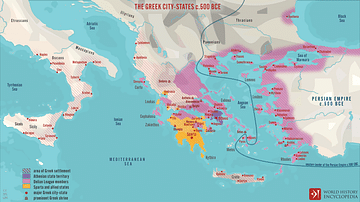
Definition
Ancient Greece
Greece is a country in southeastern Europe, known in Greek as Hellas or Ellada, and consisting of a mainland and an archipelago of islands. Ancient Greece is the birthplace of Western philosophy (Socrates, Plato, and Aristotle), literature...

Definition
Ancient India
India is a country in South Asia whose name comes from the Indus River. The name 'Bharata' is used as a designation for the country in their constitution referencing the ancient mythological emperor, Bharata, whose story is told, in part...

Video
Fall of The Roman Empire...in the 15th Century: Crash Course World History #12
Crash Course World History is now available on DVD! Visit http://dft.ba/-CCWHDVD to buy a set for your home or classroom. You can directly support Crash Course at http://www.subbable.com/crashcourse Subscribe for as little as $0 to keep...
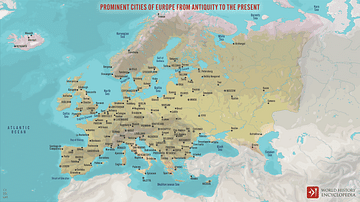
Definition
Europe
Europe is a continent forming the westernmost part of the land mass of Eurasia and comprised of 49 sovereign states. Its name may come from the Greek myth of Europa, but human habitation of the region predates that tale, going back over 150,000...
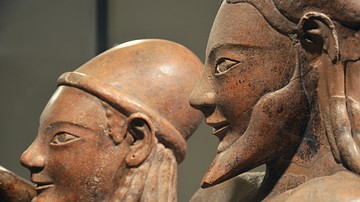
Definition
Etruscan Civilization
The Etruscan civilization flourished in central Italy between the 8th and 3rd century BCE. The culture was renowned in antiquity for its rich mineral resources and as a major Mediterranean trading power. Much of its culture and even history...
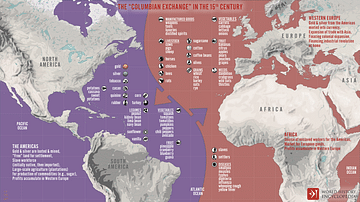
Definition
Columbian Exchange
The Columbian exchange is a term coined by Alfred Crosby Jr. in 1972 that is traditionally defined as the transfer of plants, animals, and diseases between the Old World of Europe and Africa and the New World of the Americas. The exchange...

Definition
New Kingdom of Egypt
The New Kingdom (c. 1570- c.1069 BCE) is the era in Egyptian history following the disunity of the Second Intermediate Period (c. 1782-1570 BCE) and preceding the dissolution of the central government at the start of the Third Intermediate...

Definition
Kievan Rus
Kievan Rus (862-1242) was a medieval political federation located in modern-day Belarus, Ukraine, and part of Russia (the latter named for the Rus, a Scandinavian people). The name Kievan Rus is a modern-day (19th century) designation but...

Definition
Hellenistic Period
The Hellenistic Period is a part of the Ancient Period for the European and Near Asian space. The use of this period is justified by the extent of the Hellenic culture in most of these areas, due to the Greek political presence especially...
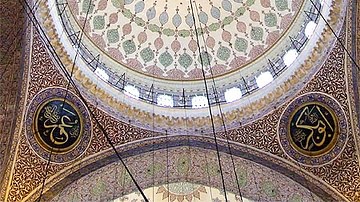
Definition
Rashidun Caliphate
The first four caliphs of the Islamic empire – Abu Bakr, Umar, Uthman, and Ali are referred to as Rashidun (rightly guided) Caliphs (632-661 CE) by mainstream Sunni Muslims. Their tenure started with the death of Prophet Muhammad in 632 CE...